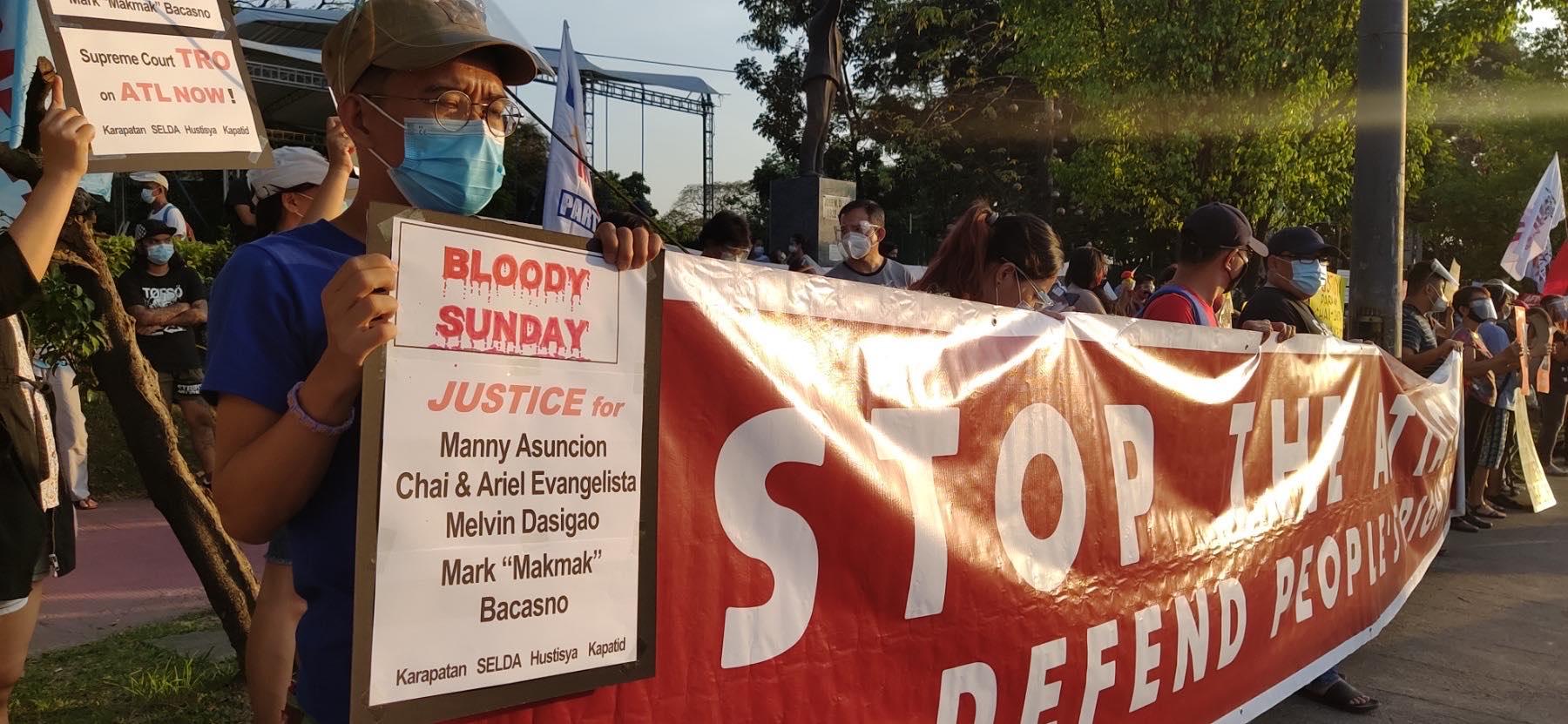Amnesty International: Duterte administration marred by impunity, unlawful killings

The lack of accountability continued to facilitate unlawful killings and other human rights violations under President Rodrigo Duterte's drug war, human rights organization Amnesty International (AI) said in its 2021/22 report.
In the report, AI cited the decision of the International Criminal Court in the Hague to probe the drug war deaths, although this probe has been suspended at the request of the Philippine government so that it could resolve these killings before domestic courts first.
"President Duterte continued to incite violence against people suspected of using or selling drugs. In his State of the Nation Address in July, he also called on Congress to legislate for free legal assistance for members of the security forces accused of unlawful killings," the AI said.
"In October, the Department of Justice released partial information from its review of just 52 of the thousands of cases involving killings by police during anti-drug operations. Although the review was woefully inadequate and failed to meet international standards, its limited findings contradicted police claims that lethal force had been justified, and confirmed violations documented by local and international human rights groups," AI added.
Aside from drug war deaths, AI invoked the cases of human rights defenders, political activists, and politicians subjected to unlawful killings, arbitrary arrest and detention, and harassment, as well as indigenous peoples being the target of attacks by the authorities and unknown assailants.
The NGO also pointed to the slew of cases filed against journalist and 2022 Nobel Peace Prize Winner Maria Ressa. While two charges of cyber libel against her were dismissed, she continued to face other charges for which she could face up to 60 years in prison if found guilty.
Anti-dissent
AI also noted the linking of organizations and individuals to communist groups, an effort known as "red-tagging", which led to killings and harassment of human rights workers.
One such incident was the killing of nine people and the arrest of six others on March 7, 2021, also known as Bloody Sunday.
"Environmental activists and urban poor community leaders were among those arrested and killed. Allegations by the security forces that firearms and explosives were seized during the raids, and that those killed were resisting arrest, were denied by the groups involved," AI said.
"In a speech given two days before the raids, President Duterte said
that he had ordered the police and military to 'kill' communist rebels. In December, the Department of Justice recommended the filing of murder charges against 17 law enforcement officials for the death of labor leader Emmanuel Asuncion during the raids," AI added.
The AI also argued that while the Supreme Court struck down two portions of the Anti-Terrorism Law in December 2021, the law already proved to be flawed and open to abuse as shown in the case of the Olongapo City court dismissing charges against two members of the Indigenous Aeta community in July 2021 due to a case of mistaken identity.
AI also cited the detention of Senator Leila de Lima, whose one of three drug-related charges was dismissed by the court last year, as a prisoner of conscience.
Indigenous peoples were also not spared. AI lamented that a Cordillera police chief issued an order to "shoot-to-kill" Windel Bolinget, a prominent Indigenous peoples' rights advocate. The murder charge filed against Bolinget was dismissed in July 2021.
Likewise, AI also pointed to unknown assailants who shot dead Julie Catamin, the chief of Roosevelt village in Tapaz municipality, Capiz province, last February 2021.
Catamin was a witness in a case relating to a police raid in December 2020 in which community leaders from the Tumandok Indigenous people were arrested and others killed.
In February 2021, AI said that security forces raided a school in Cebu City in which students from Indigenous communities displaced by armed conflict were living.
Seven people, including students, teachers, and a community elder, were arrested without warrants and charged with kidnapping and human trafficking. They were detained for three months before the charges were dismissed.
The Duterte government's COVID-19 response was also included in the AI report, with the human rights group noting that the already inadequate healthcare system lacked sufficient hospital beds and health workers to treat COVID-19 patients.
In addition, AI said that while the government began a COVID-19 vaccination program in March, there were concerns about slow implementation, uneven geographical distribution, and discriminatory access to vaccines.
"In August 2021, a report by the independent statutory body, the Commission on Audit, revealed deficiencies in the Department of Health's handling of funds allocated to the COVID-19 response, including irregularities in the transfer of funds between government departments," AI said.
Recycled issues, arguments
In response, acting presidential spokesperson Martin Andanar dismissed AI's findings as rehashed and false.
"We consider the AI Report 2021-2022 as simply a cut-and-paste collection of recycled issues and arguments used by perennial detractors and critics of the Duterte Administration," he said.
"Sadly, AI’s reports are never vetted with the Philippine government if only to authenticate their information. The absence of such vetting relegates AI’s report to a mere false rehash," he added.
Andanar, however, said that the Philippine government was committed to promoting and protecting human rights.
"In keeping with our commitment to remain open to multi-stakeholder engagements, we ask AI to sit down with the government to clarify whatever concerns them, valid issues or otherwise," he said.
"Offhand, we urge them to engage with the Presidential Human Rights Committee Secretariat so that matters are properly discussed and resolved. Let it not be missed out, especially by AI, that the Philippines’ election to a fifth term in the United Nations Human Rights Council is a recognition by this global body of the Philippine government’s faithful adherence to promoting, protecting, and fulfilling the human rights of the Filipino people," he added. — DVM, GMA News



